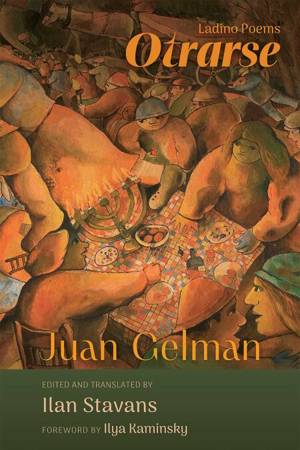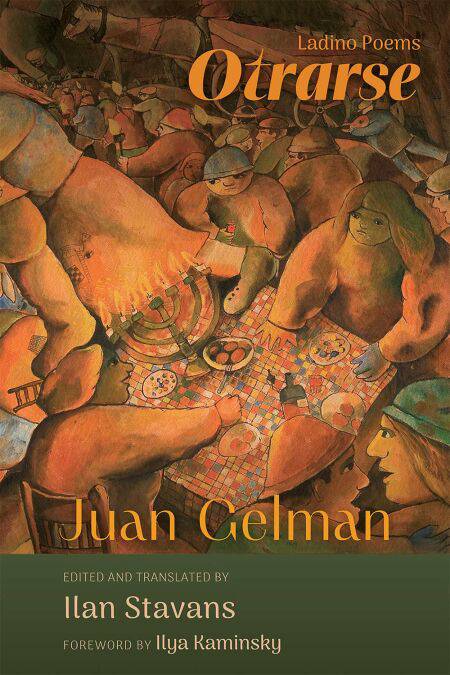
Bedankt voor het vertrouwen het afgelopen jaar! Om jou te bedanken bieden we GRATIS verzending (in België) aan op alles gedurende de hele maand januari.
- Afhalen na 1 uur in een winkel met voorraad
- In januari gratis thuislevering in België
- Ruim aanbod met 7 miljoen producten
Bedankt voor het vertrouwen het afgelopen jaar! Om jou te bedanken bieden we GRATIS verzending (in België) aan op alles gedurende de hele maand januari.
- Afhalen na 1 uur in een winkel met voorraad
- In januari gratis thuislevering in België
- Ruim aanbod met 7 miljoen producten
Zoeken
€ 20,12
+ 20 punten
Uitvoering
Omschrijving
One of Latin American’s most important poets of the twentieth century, Juan Gelman (1930–2014) spent much of his life in exile from his native Argentina during the Dirty War. Gelman was a child of Yiddish-speaking Ukrainian immigrants, and a significant, seldom recognized portion of his poetry dealt with Jewish themes. He established a dialogue across time with Santa Teresa de Ávila and San Juan de la Cruz, the sixteenth-century Spanish mystical poets whose ancestry was also Jewish. He rewrote portions of the Bible, medieval Hebrew poetry, and even taught himself Ladino, the language of Sephardic Jews, and wrote a book of poems in it.
In this bilingual volume, celebrated scholar Ilan Stavans retraces Gelman’s regard for these poetic ancestors, translating into English his Jewish oeuvre by carefully preserving the Hebrew, Spanish, and Ladino echoes of the originals. The result is historically accurate and artistically exhilarating, repositioning Gelman as a major Jewish writer of the last century.
In this bilingual volume, celebrated scholar Ilan Stavans retraces Gelman’s regard for these poetic ancestors, translating into English his Jewish oeuvre by carefully preserving the Hebrew, Spanish, and Ladino echoes of the originals. The result is historically accurate and artistically exhilarating, repositioning Gelman as a major Jewish writer of the last century.
Specificaties
Betrokkenen
- Auteur(s):
- Uitgeverij:
Inhoud
- Aantal bladzijden:
- 256
- Taal:
- Engels
- Reeks:
Eigenschappen
- Productcode (EAN):
- 9780826366801
- Verschijningsdatum:
- 14/11/2024
- Uitvoering:
- E-book
- Beveiligd met:
- Adobe DRM
- Formaat:
- ePub

Alleen bij Standaard Boekhandel
+ 20 punten op je klantenkaart van Standaard Boekhandel
Beoordelingen
We publiceren alleen reviews die voldoen aan de voorwaarden voor reviews. Bekijk onze voorwaarden voor reviews.









